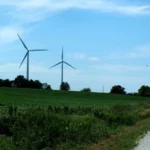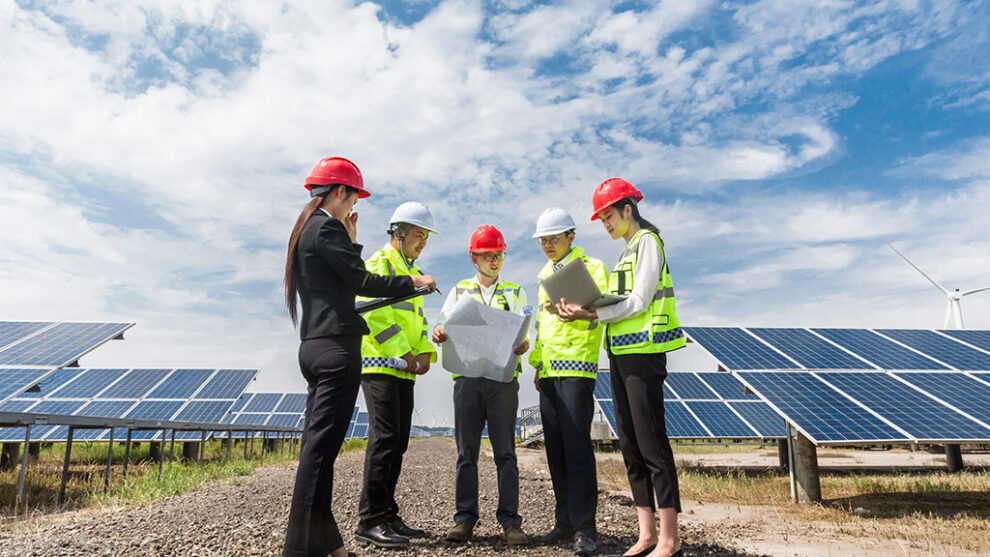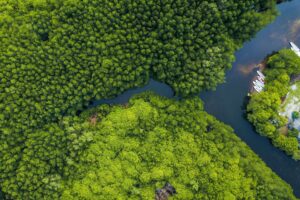From next month officials from the Ministry of Energy and Business are to embark on a six-month comprehensive assessment of the island’s renewable energy activities to determine what changes will be necessary to ensure that the country remains on course to meet the 2030 targets.
Government has seven years to achieve a transition from fossil fuels to 100 per cent reliance on renewable forms of energy.
Minister of Energy and Business Senator Lisa Cummins said there were “quite a number of things” to be done in order to achieve the renewable energy targets outlined in the Barbados National Energy Plan 2019.
She also indicated that the two-year-old Integrated Resource and Resiliency Plan (IRRP), which outlines potential transition avenues for the island to achieve its energy goals, will also be examined to determine what changes were necessary.
Cummins said that since taking up the portfolio of energy at the end of October last year she has met “with every single one of the stakeholders in the industry” to assess what they are already doing.
However, she said starting March 6, 2023, officials from her ministry would begin the process of updating what the “national trajectory” looks like.
“We have been working with a partner and we will have a kick-off on March 6 and we will talk more about that at that time, but we will be going through sector by sector, industry by industry to ensure that the transition is going to be on track,” she announced.
“Where it is not on track we need to be able to figure out what needs to be done to make it so, and then we are going to be overlaying what is the level of investment that is going to be necessary to support both households, government and of course the private sector, to make this work,” said Cummins.
She made the revelation on Thursday during a press conference at Courtesy Garage Limited in Wildey, St Michael, where officials of that Goddard Enterprises subsidiary announced a partnership with Nissan Motor Corporation to explore the potential for a vehicle-grid integration mechanism in Barbados.
Using the manufacturing sector as an example, Cummins explained that there were a number of diesel-operated plants that were built decades ago and which would require changes to facilitate the use of renewable energy.
She gave the assurance that government would work closely with them to facilitate the transition, noting that they would potentially have to switch to LNG (liquified Natural Gas) as a medium-term strategy before moving to cleaner forms of energy.
“There are, however, many companies in Barbados now that we have seen, like Goddard Enterprises, that have an extensive photovoltaic penetration in terms of their solar farms and their roof installations. So that is something that is being seen across the industry,” said Cummins.
“But then we have to look at what is happening in agriculture, we have to look at what’s happening in the tourism sector, we have to look and see what is happening of course in transport,” she said. The latter sector, she indicated, accounted for the largest percentage of the island’s energy use.
Admitting that the transition would not be easy, the government minister said she was aware that many of the businesses that would need to transition to renewable energy use were still recovering from the effects of the COVID-19 pandemic.
“We must never forget that many of these businesses went through COVID just a short time ago and their balance sheets were faced with any number of difficulties and so the transition in some instances would have taken a hit, certainly over the last two years,” she acknowledged.
However, she gave the commitment that Government would be working closely with the private sector to ensure that the country meets its 2030 energy goals.
“So far, I can see from the private sector’s perspective the commitment coming from them, but we will be working with them on a six-month plan [starting in] March so we can ensure that the private sector and government remain fully on stream with a 2030 target,” insisted Cummins.
She said at the same time, Government would be ensuring that the transition was “just” for all residents.
“This has to also focus on ensuring that people are at the centre of this transition – ensuring that new industries emerge out of old industries, new jobs emerge out of old jobs, retooling, upskilling and retraining – all of those things have to take place to ensure that Barbados is positioned for the energy future that we see for ourselves,” said Cummins. (MM)
Source: Barbados Today











Add Comment